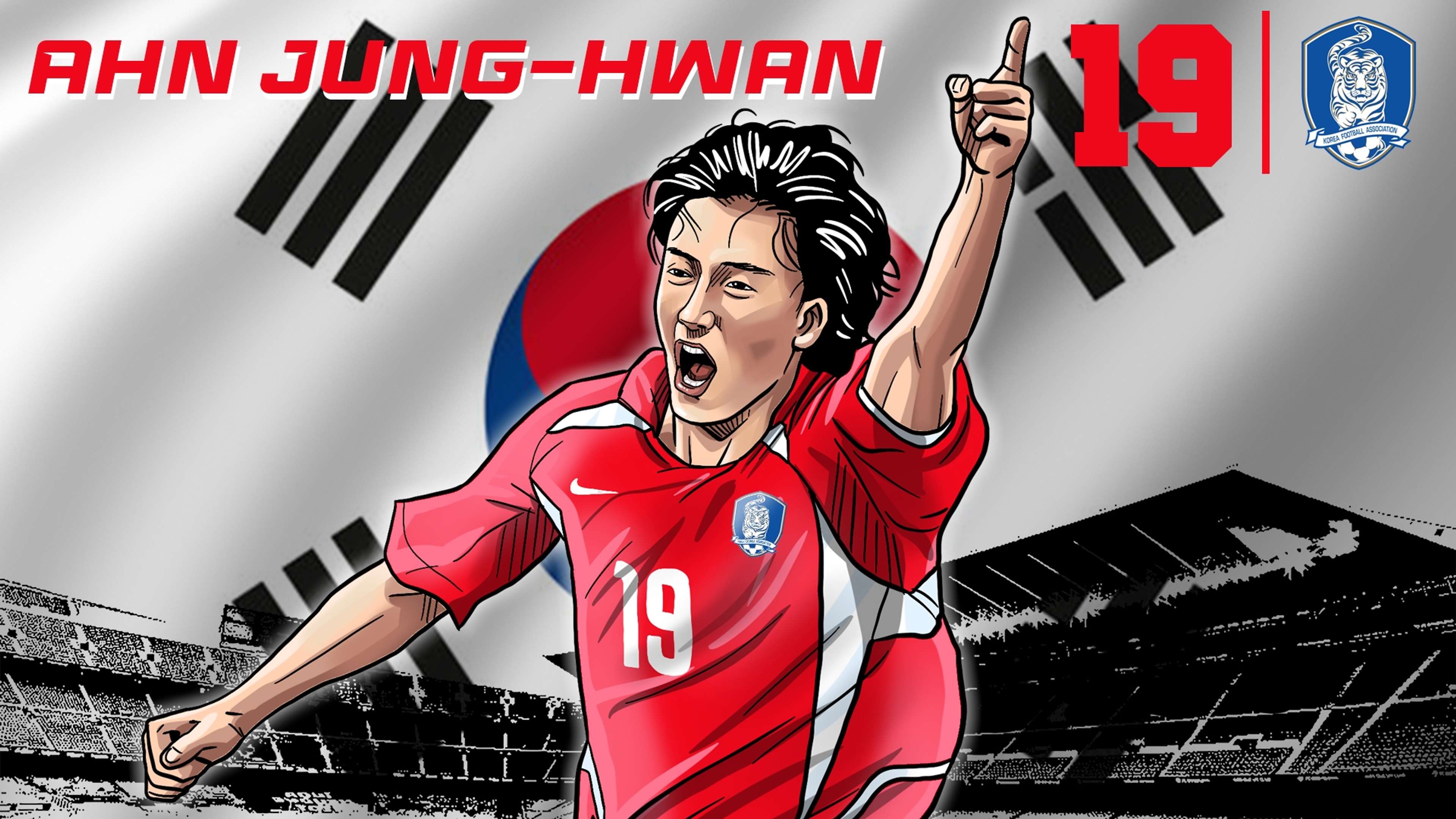Ahn Jung-hwan endured a traumatic childhood. Raised by his grandmother after the loss of both of his parents, he never had much growing up.
He only started playing football as a kid because his local club offered their players bread and milk.
It's perhaps unsurprising, then, that even after turning professional, his post-retirement goals were modest.
"I hope I will be running a small grocery store," he revealed, "and just living in comfort."
Happily, Jung-hwan is doing quite well for himself, albeit not as a green-grocer.
He has instead established himself as one of the most famous broadcasters in South Korea. He even has his own YouTube channel.
And his success is rooted in one of the most famous goals, in one of the most infamous matches, in World Cup history.
An entire book could be written about South Korea's meeting with Italy in Daejeon in 2002.
In Italy, the referee, Byron Moreno, remains renowned as one of the biggest villains in football history.
Jung-hwan, meanwhile, is remembered for his Golden Goal – and the pathetic reaction it provoked from his employer, Perugia president Luciano Gaucci.
At the time, the striker was coming off two underwhelming seasons in Serie A, which had featured just five goals in 30 appearances.
His confidence was low and he had actually begun the World Cup sitting on the bench.
However, South Korea boss Guus Hiddink retained the utmost faith in Jung-hwan. He told him that the tournament would change his life – and it did.
 Getty/GOAL
Getty/GOALHe came off the bench to score in the group-stage clash with USA, earning his nation a precious point and himself a place in the starting line-up.
His most significant contribution, though, would come against his adopted home.
Jung-hwan later confessed that he felt Italy had no chance against a star-studded Italy. However, the last-16 showdown united Korea like no other match, before or since.
The Taeguek Warriors even received support from their neighbours to the north, while the fans that descended upon Daejeon on June 18, 2002 revelled in reminding the Azzurri of one of their most humiliating World Cup defeats.
'Again 1966' was the message from the stands, a reference to Italy's loss to North Korea at Goodison Park 38 years previously.
Jung-hwan should have opened the scoring, too, but his early penalty was saved by Gigi Buffon.
So, when Christian Vieri broke the deadlock, it appeared that a team that also contained Francesco Totti, Alessandro Del Piero and Paolo Maldini would coast to victory.
However, Italy's coach, the notoriously pragmatic Giovanni Trapattoni, instead tried to see out the game, and the Azzurri almost inevitably paid the price, with Seol Ki-Hyeon equalising with just two minutes of normal time remaining.
By this stage, Moreno's performance – and apparent lack of fitness – was already coming under scrutiny, and it only intensified when Totti was harshly shown a second yellow card for simulation.
Then, with just three minutes to go before penalties, the ball was swung into the Azzurri area.
There appeared to be only one winner: Maldini, arguably the greatest defender of all time.
Jung-wan, though, got the jump on him – literally.
 Getty/GOAL
Getty/GOALHe later revealed, "I actually thought I jumped too early and wouldn't be able to head the ball. But Maldini got his timing wrong because I jumped first. That was a big stroke of luck for me."
There was nothing fortuitous about the finish, though, with Jung-hwan heading home to send Korea into raptures, and Italy into meltdown.
Jung-hwan became an instant icon. "I remember there were so many fans waiting for me that I couldn't go outside," he told JoongAng.
Indeed, his Golden Goal had generated a wave of euphoria that South Korea rode all the way until the last four.
However, in Italy, there was uproar, with many believing Moreno's handling of the game to be evidence of match-fixing.
The Gazzetta dello Sport, meanwhile, claimed that this was the latest demonstration of a FIFA-led persecution of the Azzurri.
Gaucci, though, focused his frustration on Jung-hwan.
"That man will never set foot in Perugia again," he fumed. "He was a phenomenon only when he played against Italy!
"I am a nationalist and I regard such behaviour not only as an affront to Italian pride but also an offence to a country which two years ago opened its doors to him.
"I have no intention of paying a salary to someone who has ruined Italian football."
The notoriously erratic Gaucci quickly backed down but Jung-hwan was understandably outraged, blaming his boss for creating a toxic atmosphere which he says resulted in his car being vandalised and local news reports of death threats from the mafia.
"It was almost like I had ended my entire football career with that one goal," he told JoongAng.
 Getty/GOAL
Getty/GOALJung-hwan refused to play for Perugia again and what followed was a messy contractual dispute which scuppered his hopes of joining Premier League outfit Blackburn Rovers.
In the end, a Japanese firm agreed to pay the €3.8 million (£3.3m/$3.8m) that Gaucci was demanding in compensation, and the forward joined J-League outfit Shimizu S-Pulse.
He later acknowledged, "My life could have been different if I had played in the Premier League, but a lot of people have told me that they were very happy because I was part of the 2002 squad, and I always tell them, no, you made me happy.
"I think that $3.8m is the price I paid for the respect and love I have received from the people."
Jung-hwan, then, has no regrets, and rightly so.
The controversy which surrounded South Korea-Italy, and the subsequent fallout, had absolutely nothing to do with him. He did absolutely nothing wrong.
As he said himself in an interview with FIFA+, "There's no law stating I'm not allowed to score against Italy. When I look back, I would swap my whole career for that one goal."
The header that made him a national hero.
